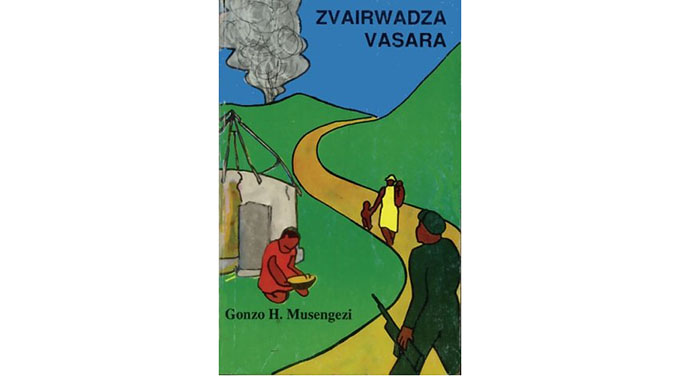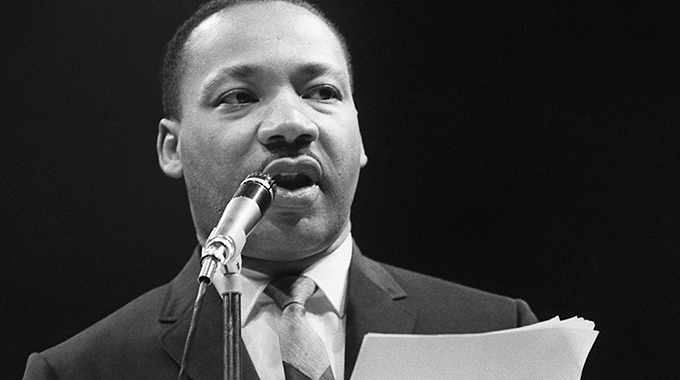Of non-believers, collective suffering and the artiste
Elliot Ziwira @The Book Store
STANLEY Nyamfukudza remains as enigmatic as he is sceptically honest when it comes to putting the role of the artiste in society into perspective through his flat refutation of the notion that the writer should conform to set parameters.
His portrayal of Sam Mapfeka as an aloof social deviant, intellectual renegade; who sees a blocked end at the tunnel of national patriotic ideology and a non-believer in the collective nature of suffering, is rich fodder for criticism and academic debates, drawing in such luminaries as Rino Zhuwarara, Flora Viet-Wild, Itai Muwati and Evans Mandove.
The controversial and contradictory nature of liberation struggles across Africa in general, and Southern Rhodesia in particular, make the reading of Nyamfukudza’s hero in “The Non-Believer’s Journey” (1980) evocative, revealing and thought provoking, especially when read against the backdrop of the struggle between the individual and the collective, as purveyed through Sam’s encounter with both sides of the struggle; at the roadblock and at a pungwe in his rural home of Mutoko.
Through the use of nihilistic and surrealistic traits of modernism, Nyamfukudza exposes the fatalistic nature of heroism. The writer has a way of looking at life, which is both befuddling and provocative, as he gets into the reader’s psyche and pleads with him/her to look at issues from another angle. And it is this nature of the artiste that exposes him to whiplashing from many quarters, especially given the period that the novel was published; immediately after Zimbabwe’s independence when the euphoria was still blindingly numbing. Nyamfukudza intimates in an interview:
“I remember the disfavour with which ‘The Non-Believer’s Journey’ was viewed when first published, with critics like Ranga Zinyemba suggesting there was undue pessimism too soon after Independence. I was also not popular with ex-combatants and viewed as a traitor in some circles. I think part of the problem was because the bulk of writers were not ex-combatants and had a guilt complex about being critical. Most of the war literature, especially in indigenous languages, was simplistic, self-congratulatory hero worshipping discourse, (Muwati, 2009: 350).
In Mandove’s view Nyamfukudza “contributes in the creation of incoherence, fragmentation and discomfiture”, because “authors should not be weighed down by negativism to the extent of retreating into self-effacing nothingness” (Mandove, 2017: 191). He goes on to say that: “By opting for disillusionment and futile protests, Nyamfukudza actually suspends the quest for better life prospects that his readers yearn for,” (ibid).
Through Sam’s depiction, Nyamfukudza’s folly, therefore, is that his “vision of national patriotic culture in Zimbabwean liberation struggle is, therefore, conformist and retrogressive. He downplays the positive role of a national patriotic culture during national struggles” (ibid). This rationale also finds base in Zhuwarara (2001:134), whose reading of “The Non-Believer’s Journey” is that it is informed by “the subversion of the goals of liberation struggles across Africa that attained independence ahead of Zim- babwe.”
However, questions still abound on liberation struggles across the continent. What easily comes to mind is whether the liberation struggle is a bed of roses or not. Is the individual simply a pawn in the Manichean world, which looks at issues through binary lenses? Are the reasons for joining the liberation uniform? Looking at events obtaining on the ground 38 years after Independence can it be difficult to vindicate Nyamfukudza as a prophet, which is one of the roles of an artiste?
Muwati (2009), citing McLaughlin (1996), notes that the glorification of the liberation struggle in the years hard upon Independence, though noble, was meant to pamper the egos of liberation fighters, especially the leaders as a way of shaping the national patriotic culture as well as consolidating power.
Though written earlier, “The Non-Believer’s Journey” (1980) questions the essence of nationalist culture vis-à-vis individual aspirations in the same way that Alexander Kanengoni’s “Echoing Silences” (1997), Shimmer Chinodya’s “Harvest of Thorns” (1989) and “Silent Journey from the East” (1989) by Isheunesu Valentine Mazorodze do. Sam’s character in a way can be likened to Pepetela’s Fearless in “Mayombe” (1980), who despite being a revolutionary, questions the essence of nationalist ideology and the place the individual in such a space occupy.
Nyamfukudza’s scepticism, existentialist and nihilist tendencies, which find base in his work, especially in “The Non-Believer’s Journey” (1980), “If God was a Woman” and “Aftermaths” (1983), is explicit in the following: “My responsibility is to be honest to myself and, therefore, to society as I can. I think it is presumptuous for an author to say he is a teacher, but in Africa, writers are seen as people who have something significant to say” (cited in Maveneke, 1983:5). The writer may be masochistically sceptical, but to call him “lost”, or one who retreats into “self-effacing nothingness” (Mandove, 2017), risks limiting the role of the artiste to a bogey man.
Teaching is multifarious as Nyamfukudza subtly infers, albeit unconsciously. Although teaching takes a multiplicity of forms, it should be divorced from individual intonations, as it hinges on societal expectations, for this is what gives the individual bearings into the future. Though scepticism may seem to be the bane of humanity, especially when it is exposed through supposedly torchbearers like artistes, it is Stanley Nyamfukudza’s forte.
With great caution, lest he be drawn into the essence of heroism, which finds glory in many a writer’s repertoire, he uses a rather anti-hero in “The Non-Believer’s Journey”, as he seeks to make his kindred understand the futility of it all. He follows up on the trait in “Aftermaths”, especially in the stories “Boots”, “Opting Out”, “Aftermaths” and “Settlers”.
Set in the pre-independence era, which naturally could have seen him captivated in the euphoria of the liberation struggle, culminating in inevitable and sweet freedom, the writer decides against swallowing it wholesome. Using Sam, a degreed, outspoken, charismatic and atheistic teacher, who can be read as Nyamfukudza himself, the writer pokes at the vanity of heroism.
Sam exposes the bane of a nationalist culture premised on blind hope, where the collective voice finds solace in numbers, yet as individuals they fail to locate their voices, as is highlighted at the roadblock. Yes, as an educated African he is exempted from certain restrictive machinations of the racist Smith government, which in a way gives his voice articulation as is evident in his dialogue with the white soldier, but his questioning of the status quo remains valid.
To him the white soldier, like the guerrillas, is in the war for different reasons many of which are devoid of a nationalistic cause. As is the case with Theory in “Mayombe” (1980), the protagonist is not blind to oppressive white apparatus that relegated his people to the periphery of existence, but he represents that third voice, which advocates the creation of space for “maybe”, instead of “either” “or”.
Through dialogue and interior monologue, Sam abets the understanding of the power politics at play on either side of the tussling in the liberation struggle. The Rhodesian soldier’s individualistic nature is exposed as he is driven by jealousy and not collectivism, as the others do not join him against Sam, whom they see as harmless. Even black soldiers among the group are said to be unmoved by the encounter, because the young soldier is not their leader. The white soldier sees Sam as an enemy and potential sponsor of terrorism because he earns more money than him, not because he is black.
As is evident in Alexander Kanengoni’s “Echoing Silences” (1997), George Orwell’s “Animal Farm” (1945) and Charles Mungoshi’s “Waiting for the Rain” (1975), Nyamfukudza is contemptuous of heroism; that kind of heroism one comes across in Thomas Bvuma’s “Every Stone That Turns” (1997). His giving Sam a voice and ability to analyse life’s complexities, and determining what is right for him, expresses liberty and freedom of communication; be it interpersonal or intra-personal. But the question that beckons is in determining whether freedom is a right or a privilege; a question that rarely finds straight answers in post-colonial societies.
As a character Sam may be said to be aloof, arrogant, impatient and pessimistic as is evident at the roadblock and the pungwe, for he seems to throw caution to the wind, but such traits are not akin to lack of patriotism, because they are simply individual traits; and fiction as a reflection of life is awash with such characters.
Through characterisation and articulation of nihilistic traits, Nyamfukudza creates both urgency and agency, which society desperately needs, because it is not Western education that changes Sam Mapfeka, as we are told that even as a child he would question the authenticity of his grandmother’s folk stories.








Comments